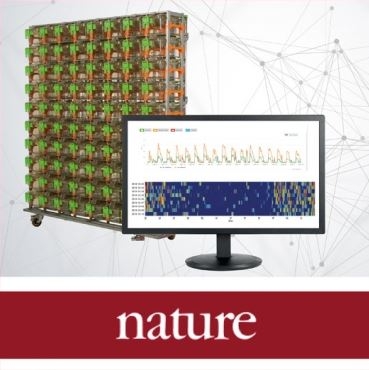

An extremely interesting article published on 'Nature' shows how remotely tracking mice cages, DVC® reduces animal stress and reveals environmental factors that undermine the reliability of experimental data.
The article, supported by the latest scientific publications from the most important Research Centres in Europe and in the USA, describes the DVC® system as the best accessible and scalable home cage monitoring solution, based on a proven electromagnetic field technology (EMF), which has been shown to have no long-term effects on mice. The article underlines the scalability of the system and how it is compatible with existing cage racks and accessories so can be directly and easily introduced into most animal facilities.
The article points out how DVC® racks are washable and autoclavable as a normal rack.
The article discusses how this platform can track animal activity, food and water availability and other parameters. Indeed DVC® employs an array of electrodes that can monitor physical activity and reveal patterns of movement and behaviour based on changes in conductance as an animal passes over them. This enables researchers to quickly determine whether animals have experienced a disruptive stressor based on changes in activity. The article notes that upticks in daytime movement are often indicative of atypical behaviour in the normally nocturnal mouse. This might happen after a cage change for instance, which could mean there is a stress in the mice because they have to rebuild their environment.
The author of the article interviewed some early users who already have an ambitious vision for cage-monitoring technologies as a means to reduce the use of laboratory animals in research. Some of them predict that as more researchers begin recording the activity profiles of their various rodent strains under both 'normal' and disruptive laboratory conditions, there is the potential to create a shared resource - a virtual control cohort for behavioural studies. Interviewed researchers underlined that by leveraging high-throughput automated data collection technologies, such as DVC®, they can build huge libraries about behaviours of different strains, substrains, ages, sex and have knowledge base to draw on when we assess new behaviours, which is of extraordinary value.